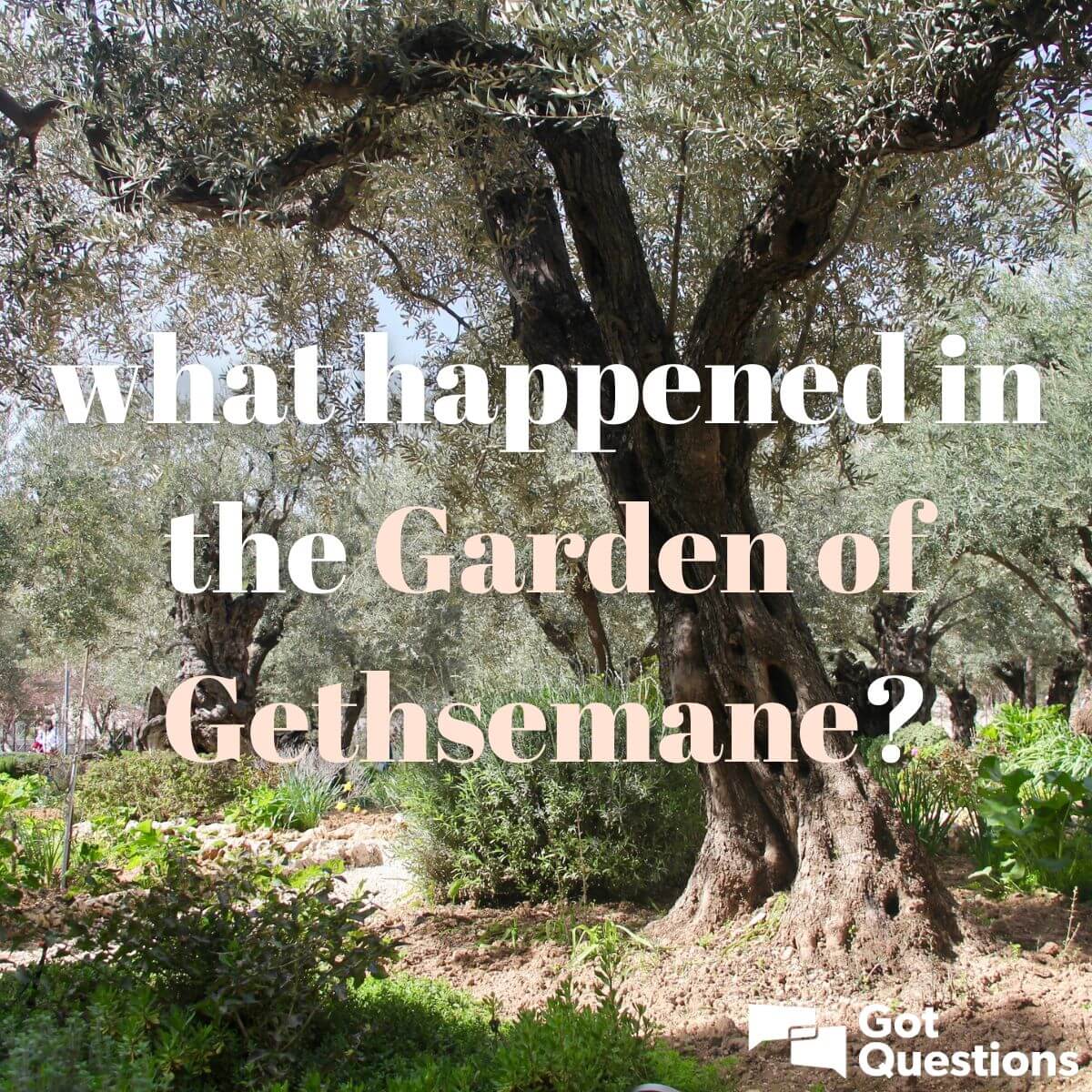GodIsMySavior
Member
John chapters 14 thru 17 is perhaps the longest discourse by Jesus to the Apostles in the NT.
Chapts 15-17 occurs after the last supper [and when Judas left it to betray Jesus.] and is spoken in the garden of Gethsemane, located at the Mount of Olives.
I welcome all comments and views concerning this Garden event and even corrections if any.
Thank you and Blessings
========================================
Jesus Predicts His Betrayal
(Psalm 41:1-13; Matthew 26:17-25; Mark 14:12-21; Luke 22:7-13)
Jesus Prays at Gethsemane
(Mark 14:32-42; Luke 22:39-46)
John 13:
1 It was now just before the Passover Feast, and Jesus knew that His hour had come to leave this world and return to the Father. Having loved His own who were in the world, He loved them to the very end.a 2 The evening meal was underway, and the devil had already put into the heart of Judas, the son of Simon Iscariot, to betray Jesus.
31But I do exactly what the Father has commanded Me, so that the world may know that I love the Father. Get up! Let us go on from here.
Matthew 26:36 At that time Jesus went with His disciples to a place called Gethsemane, and He told them, “Sit here while I go over there and pray.”
Mark 14:32 Then they came to a place called Gethsemane, and Jesus told His disciples, “Sit here while I pray.”
Luke 22:39 Jesus went out as usual to the Mount of Olives, and the disciples followed Him. 40 When He came to the place, He told them, “Pray that you will not enter into temptation.”
===============================
Before I start, I looked for a good article describing the garden Jesus spoke his discourse. I found this rather good one, but if others want to share one, that is ok.
I will only post the first portion of it because of it's length. The link to it is below.

The garden at Gethsemane, a place whose name literally means “oil press,” is located on a slope of the Mount of Olives just across the Kidron Valley from Jerusalem. A garden of ancient olive trees stands there to this day. Jesus frequently went to Gethsemane with His disciples to pray (John 18:2). The most famous events at Gethsemane occurred on the night before His crucifixion when Jesus was betrayed. Each of the Gospel writers describes the events of that night with slight variations, so reading the four accounts (Matthew 26:36-56, Mark 14:32-52, Luke 22:40-53 and John 18:1-11) will give an accurate picture of that momentous night in its entirety.
As the evening began, after Jesus and His disciples had celebrated the Passover, they came to the garden. At some point, Jesus took three of them—Peter, James and John— to a place separated from the rest. Here Jesus asked them to watch with Him and pray so they would not fall into temptation (Matthew 26:41), but they fell asleep...................................................
Following the Passover meal and the Lord’s Supper, Jesus now shares 24 promises with his apostles in the Upper Room Discourse concerning the days to come. He then prays for Himself, His disciples and all believers who follow. Jesus then enters the Garden of Gethsemane to pray for strength and consecration in order to face His spiritual separation from the Father on the cross.
=================================
http//www.youtube.com/watch?v=8MhsVo12baI
A map showing the location of the garden east of Jerusalem.

===============================
My next post will be the start of Chapter 14
Chapts 15-17 occurs after the last supper [and when Judas left it to betray Jesus.] and is spoken in the garden of Gethsemane, located at the Mount of Olives.
I welcome all comments and views concerning this Garden event and even corrections if any.
Thank you and Blessings
========================================
Jesus Predicts His Betrayal
(Psalm 41:1-13; Matthew 26:17-25; Mark 14:12-21; Luke 22:7-13)
Jesus Prays at Gethsemane
(Mark 14:32-42; Luke 22:39-46)
John 13:
1 It was now just before the Passover Feast, and Jesus knew that His hour had come to leave this world and return to the Father. Having loved His own who were in the world, He loved them to the very end.a 2 The evening meal was underway, and the devil had already put into the heart of Judas, the son of Simon Iscariot, to betray Jesus.
31But I do exactly what the Father has commanded Me, so that the world may know that I love the Father. Get up! Let us go on from here.
Matthew 26:36 At that time Jesus went with His disciples to a place called Gethsemane, and He told them, “Sit here while I go over there and pray.”
Mark 14:32 Then they came to a place called Gethsemane, and Jesus told His disciples, “Sit here while I pray.”
Luke 22:39 Jesus went out as usual to the Mount of Olives, and the disciples followed Him. 40 When He came to the place, He told them, “Pray that you will not enter into temptation.”
===============================
Before I start, I looked for a good article describing the garden Jesus spoke his discourse. I found this rather good one, but if others want to share one, that is ok.
I will only post the first portion of it because of it's length. The link to it is below.

What happened in the Garden of Gethsemane? | GotQuestions.org
What happened in the Garden of Gethsemane? Why was Jesus in such much anguish in the Garden of Gethsemane?
www.gotquestions.org
The garden at Gethsemane, a place whose name literally means “oil press,” is located on a slope of the Mount of Olives just across the Kidron Valley from Jerusalem. A garden of ancient olive trees stands there to this day. Jesus frequently went to Gethsemane with His disciples to pray (John 18:2). The most famous events at Gethsemane occurred on the night before His crucifixion when Jesus was betrayed. Each of the Gospel writers describes the events of that night with slight variations, so reading the four accounts (Matthew 26:36-56, Mark 14:32-52, Luke 22:40-53 and John 18:1-11) will give an accurate picture of that momentous night in its entirety.
As the evening began, after Jesus and His disciples had celebrated the Passover, they came to the garden. At some point, Jesus took three of them—Peter, James and John— to a place separated from the rest. Here Jesus asked them to watch with Him and pray so they would not fall into temptation (Matthew 26:41), but they fell asleep...................................................
Following the Passover meal and the Lord’s Supper, Jesus now shares 24 promises with his apostles in the Upper Room Discourse concerning the days to come. He then prays for Himself, His disciples and all believers who follow. Jesus then enters the Garden of Gethsemane to pray for strength and consecration in order to face His spiritual separation from the Father on the cross.
=================================
http//www.youtube.com/watch?v=8MhsVo12baI
A map showing the location of the garden east of Jerusalem.

===============================
My next post will be the start of Chapter 14





